Latest Posts by brushlesprouts - Page 3
Avoiding Info-Dumps and Boring Exposition
Exposition can be many things in a story: character backstory, definitions, history, etc., and it’s a necessary part of any narrative. Yes, it’s “telling” instead of “showing”, but there are times when you have to “tell” to aid with pacing, detail, and most important of all, reader comprehension.
Your readers don’t know what’s in your head; they know what’s on the paper.
So you have to give exposition (though some stories will be heavier than others) and you have to do it well or your readers won’t care enough to pay attention. Exposition is not something to just shove aside or box away with an “icky” label on it because it affects the quality of the story as a whole. If you write it well, it can enhance the story rather than detract from it– which should be the goal of any element of writing.
Learning to write better exposition makes you a better writer in general, and part of writing better exposition means understanding the main problems and the solutions.
What is an “info-dump?”
Simply put, “large amounts of information that don’t directly matter to the moment of the scene”. They can be seen as reflections on backstory or facts about the characters or world, specifically in large quantities.
Three commonly seen methods of info-dumping are the chapter-start block, the monologuing narrator, and the rambling narrator. (Note: the names are not official, just what I personally call them.)
The chapter-start block is when the writer starts each new scene or chapter by giving all the backstory and relevant information at the very beginning, then running off and writing the scene while hoping the reader can remember everything. That kind of writing is often the result of “I want to get to the interesting story so I’ll take care of the boring setup first”. Guess what, your readers agree. They don’t care about your exposition because you’re presenting it in a boring way, and now they may not be able to get into the actual story because they don’t understand it as well as they could. While starting a new chapter or scene with exposition isn’t necessarily bad, large qualities of information are.
The monologuing narrator is exactly what it sounds like: the narrator talks at the reader for an extended amount of time. This info-dump can be found at any point of a scene, but it still gives way too much information at once. It also sometimes presents its own problem of timing, because the narrators shouldn’t be “zoning out to think about things” in the middle of a scene unless that detail weighs very heavily on them. Narration shows train of thought and the monologuing narrator usually needs to chill. (There are times when monologues are acceptable, but writing one primarily to deliver background information is not acceptable use.)
Similar to the monologuing narrator in that character thought takes over the scene, the rambling narrator has an additional problem in that they often go off-topic or into detail that isn’t necessary for the moment. While the occasional “ramble” can be used to show character personality, a writer can’t expect readers to actually learn from that ramble. Large amounts of information aren’t easy to digest, especially when everything is presented at the same time.
Avoiding the info dump.
Keep all information in context.
If your scene is about a character going for a job interview, don’t start mentioning their dead sister unless there’s an important connection that’s immediately relevant. Only reveal what makes sense to reveal within the events and flow of the scene. It’s true that the lines can get blurry when you’re working with a story that has interconnected elements, but early on you want to keep exposition in careful balance with the forward momentum of the narrative. Later on, once your readers are already hooked, you can ease up a little on the withholding and start exploring details– but keeping things contextual will still always be an important guideline to follow.
Use prompts for information.
Prompts are things like people, situations, in-story objects or moments that ‘remind’ the narrator of the piece of exposition. Part of avoiding never-ending, rambling, or irrelevant exposition involves using setting and plot to prompt information from the narrator’s mind, rather than just dump it all out at once. Prompts help shows connections and grant relevance by tying the information into the current scene and moment.
Narrator perspective guides exposition.
The narrative point of view helps ground the reader’s new information by presenting it through the eyes of the person they are following. This does mean that your audience can get biased info, but that’s part of the nature of storytelling; it’s not a documentary. Similar to using prompts, narrator perspective helps guide exposition by presenting information that’s relevant to the narrator and their personal story.
Use a “weaving” techniques to avoid giant blocks of text.
It’s best to weave your exposition between dialogue, thought, and action to write in a way that’s engaging and informative. Think of it like being in a class. If your professor spends the whole hour giving a lecture off slides, chances are you might be overwhelmed at times and tune out a bit. If they introduce an activity and give smaller lectures to explain the science behind the steps, then you are more likely to pay attention and not feel as overwhelmed. Writing works the same way. The best results are typically found when the activity (story events that are “shown”) are blended with lecture (backstory/exposition that is “told”).
Generally, you want to practice a balance of dialogue, action, and exposition. Some scenes may be heavier in one category than the other, and that’s okay, but a balance of those elements helps with overall pacing and keeps readers engaged and more likely to learn.
Not everything needs explaining.
While there are certainly pieces of information that you have to “tell” for the story to make sense, there are times when “showing” can cut down on lengthy exposition and make for a more engaging narrative. Why have your narrator explain/“tell” about how they don’t get along with their mother when you can show the poor relationship through the way they interact? And don’t just keep it isolated to one scene, unless the story calls for it, because some parts of exposition stretch beyond individual moments and affect the entire story. It may be tempting to try and directly point everything out at once, but that’s a quick road to long-winded scenes of exposition that leave your characters and their plot behind.
Writing more interesting exposition.
For exposition to be interesting, it needs meaning, and meaning can be granted through context and the relevance to the current scene when the reader is not yet fully invested in your story. When presenting exposition, there are a few things that can be kept in mind:
Try and convey something about the character’s personality with the way they give information. We all have a personal take on things and so will a character, so let that personal perspective show via tone, word choice, fact detail, etc.
An interesting voice can carry a story decently far, especially when it comes to giving background information. It’s possible to have a character that sticks only to the facts, but without a bit of emotion behind that exposition, it can get dry really quickly. Your character needs to interact with their world, not be a robot that gives impartial explanations of everything.
If you repeat information, which is needed for anything with heavy detail, present it in different ways or at least don’t copy the wording.
Build on detail over time, and make sure to apply that detail to the scene to allow for contextual learning.
Tension tends to create reader interest. Giving exposition during tense moments can force a reader to learn on the spot– as long as it doesn’t distract from the scene.
Pace yourself. Part of boring exposition is tied into how much is presented at once, and while info-dumps can be identified and avoided with relative ease, you still have to watch how much information is being presented in a scene or chapter. Even if you “weave” it correctly, there’s still a chance that it’s too much for a reader to reasonably digest.
Good luck with your work and if there are any questions, drop them in my ask box and I’ll see how I can help. Just please read my Rules and Considerations page to make sure I’m the best resource, and consider a Gift of Coffee to grant me an energy boost, if you’re feeling generous.

Havent updated in forever, but I figure I can catch up by spreading my love of Dragalia Lost. Instead of pranking us with false hopes, it gave us the most adorable shootem up bullet hell with Notte!
I think the worst kind of writers block is when you aren’t blocked in the conventional sense, like you know what you want to write and how to write it, you just cant put words on the page because of a crippling sense of what’s the point?
This is a neutral post

Feel free to stop here and rest before journeying to the posts below.
How I turned an idea into an outline
With NaNoWriMo around the corner, I thought I might show you how I plotted my novel.
This is the story structure I used:
0% inciting incident
0%-20% introduction in the world, ends with a point of no return
20% first plot point: the hero receives his marching orders
20%-50% response to the first plot point
35% first pinch point: reminder of the nature of the antagonistic force
50% midpoint: big fat plot twist that changes the hero’s AND reader’s experience
50%-80% attack: the stakes are higher now
65% second pinch point: again reminding the reader of the antagonistic forces at hand
80% second plot point: the final injection of new information into the story to give the hero everything she needs to become the primary catalyst in the story’s conclusion (no new information past this point)
80%-100% resolution + final conflict + return home

I didn’t make this up. I think it’s by Larry Brooks, if The Internet informs me correctly. Fun Fact: once you pay attention to it, you’ll see this structure everywhere. Just take a look at any Harry Potter book, for example.
These points are the “bones” of my story. Next, I decided what “flesh” to put on them.
I simply made a list of things I like to read about:
Books about books and libraries
Magic
Quirky characters
Intelligent, fast-paced and sometimes silly
So, I combined this list and the structure points into a story that makes sense. Because I don’t want to spoil my plot / I am still to shy about my wip, I will make up a new plot for this post, so I can show you.
0%: The hero does something magical without knowing how she did it. She discards it, because everybody knows it can’t have been real.
0%-20%: We see the daily life of the hero: she is unhappy because all she wants to do is read, but she is not allowed to. She reads in the dead of night and is punished for it by her evil stepcousin. She finds a book on magic.
20% It all clicks together: she can do magic!
20%-50% The daily life for the hero changes. Instead of reading all night, she practices magic. She now loves books even more. She has little victories over her evil stepcousin, but hasn’t won yet.
35% The evil stepcousin finds out that she can do magic and takes away the magic book.
50% She discovers she can do magic without the book.
50%-80% The hero is not the only one who is bullied by the evil stepcousin. Her younger cousin is a victim as well, and he doesn’t have magic to defend himself. The stakes are raised, this is bigger than herself now. The younger cousin also wants to read, so they have several bonding moments over reading.
65% The evil stepcousin hurts the younger cousin, he’s in a coma now.
80% The hero discovers the evil stepcousin could do all these evil things because he knows magic too.
80%-100% The hero confronts the evil stepcousin, fights him off, nearly loses but wins in the end. He gives up and releases his power over the younger cousin who wakes up from the coma.
It’s not the most genius plot ever, but I literally made this up in minutes. So can you! And imagine the genius plot you can come up with if you spend more than a few minutes on it.
Then I calculated how many scenes I need in which part of the story. My wip is a YA or 12+ book, so I want it to contain about 75,000 words in total. I want my scenes to be around 1,000 words long to keep it snappy, so I need 75 scenes.
Scene number 1 (0%) is the inciting incident, scene number 15 (20%) is the first plot point, scene number 26 (35%) is the first pinch point, scene number 37 (50%) is the midpoint, scene number 49 (65%) is the second pinch point, scene number 60 (80%) is the second plot point and scene 75 (100%) is the last scene.
Some sidenotes on the 1,000-word scenes:
That’s more of a vague rule of thumb than a strict rule. If your scene needs to be longer or shorter, make it longer or shorter of course. My wip has some 2,300-word scenes as well.
Having 1,000-word scenes does not mean I have 1,000-word chapters, that would be really short. I will divide my novel into chapters after I’m finished writing my first draft.
For NaNoWriMo, maybe you could write scenes of 1,667 words, so you do one scene per day. A 50,000-word novel has 30 scenes of 1,667 words. Inciting incident is at scene 1, first plot point at scene 6, first pinch point at scene 11, midpoint at scene 15, second pinch point at scene 20, second plot point at scene 24 and scene 30 is your last scene. That’s just an idea, you got to see what works for you.
Then I made up in one sentence what will happen in every scene. For example: “They meet the dragon and he sends them on a sidequest.” Now my outline consists of 75 one-sentence scenes. This way, I prevent the problem of the sagging middle and other pacing problems and I still get to surprise myself when writing.
From those one-sentence scenes, I flesh out every scene into a first draft, using the process I described in my post How I never have to face an empty page when I write.
And that’s my first draft! I hope everything is clear. Feel free to ask me questions if it isn’t.
I’m gonna tag a few people I admire, who I hope are interested. If you aren’t, feel free to ignore me, or message me to take you off my tag list. If you would like to be added to my writing advice tag list, let me know.
Keep reading
“All that talk about the power of friendship,” the antagonist murmured, as they circled the protagonist. “And it never even occurred to you that perhaps your enemies might have friends too, did it? How arrogant a thing, you are…”
You’ve been undercover in the Faery Court for a while now, and although you had your doubts about the possibility of success at first, now you see: being the only one who is able to outright lie is a power to be reckoned with.
date a selkie, but don’t hide her cloak. let her go home and visit her family now and then, knowing that she’ll come back and hang her seal cloak in the closet like she always does. trust is important.
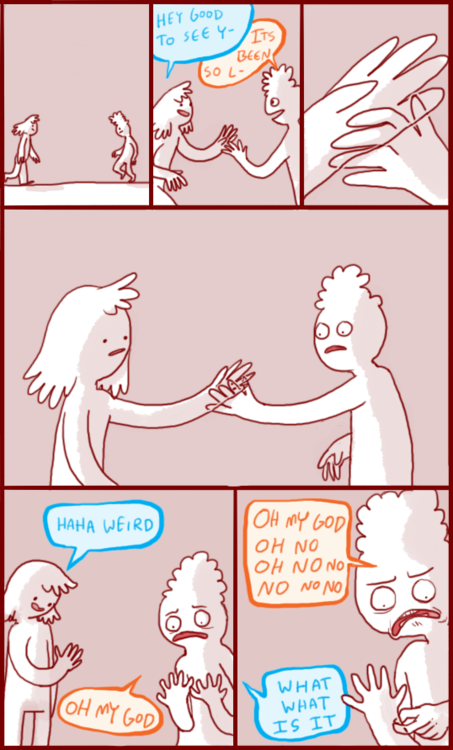
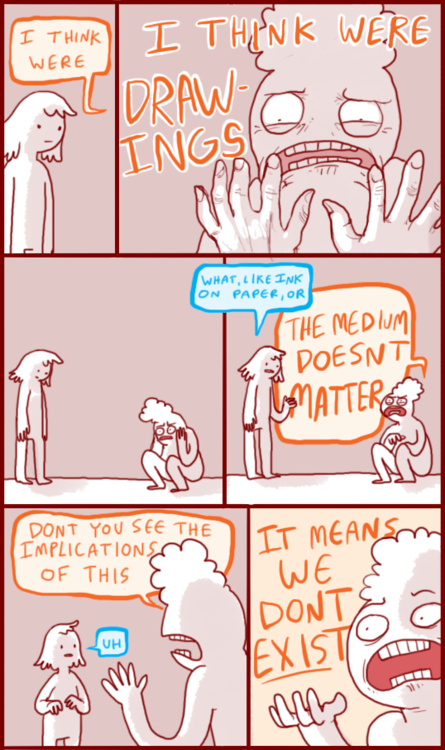
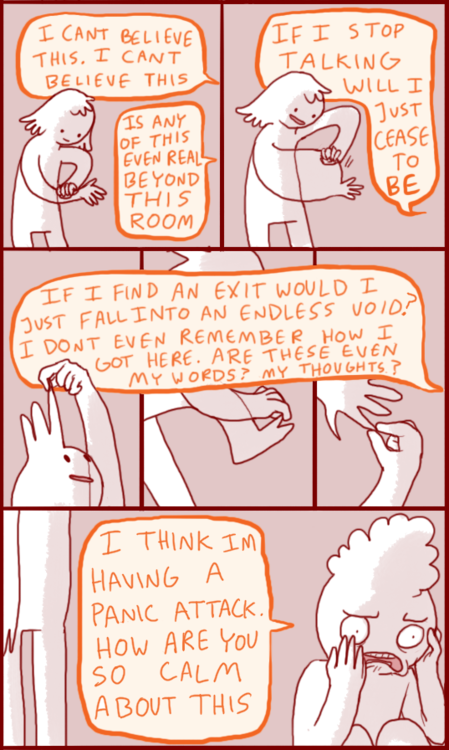
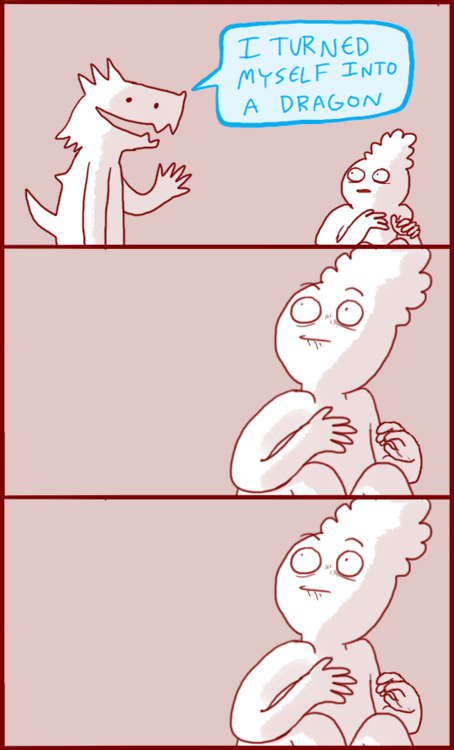
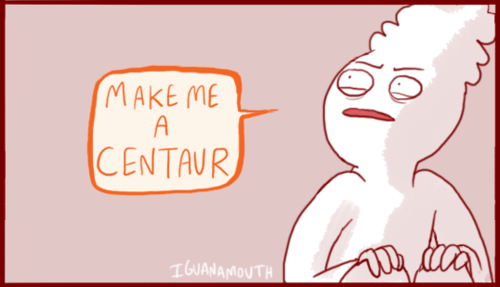
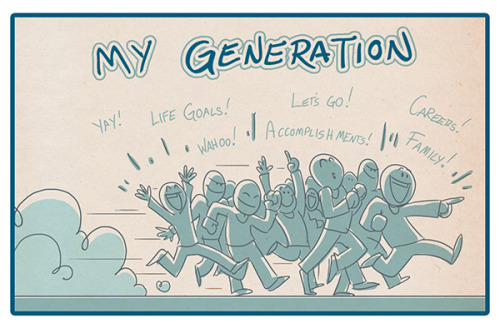

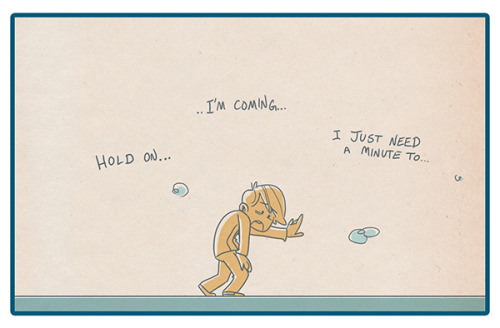

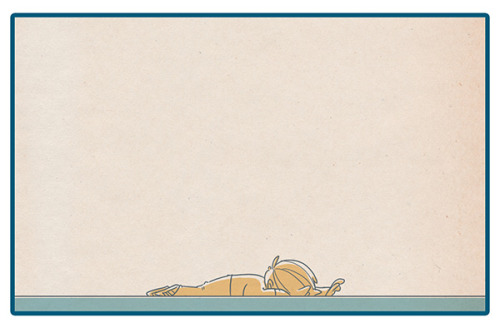

Ha ha seriously tho.
odin is like “when thor was born the sun shone bright upon his beautiful face. i found loki on the sidewalk outside a taco bell”
Reblog if you…
Liked something you wrote today.
Enjoyed writing whatever you wrote today.
Are eager to write the thing you’re supposed to write today.
Are proud to be a writer.
“This is your daily, friendly reminder to use commas instead of periods during the dialogue of your story,” she said with a smile.

Queen Hatshepsut of Ancient Egypt. She has a lovely smile for someone who’s been dead for thousands of years.
when i was seven the sea-witch cursed me.
she cursed my great-grandfather, actually, who had spat on the hands of the ocean and disrespected the beating heart of the earth - for what else are waves but a pulse - who was silly and violent and who tried to rip from the water what was hers by rights. we were wealthy, before that, a family of merchants. my mother says in her youth she recalls white horses, the gleam of candles, early mornings with bread baked fresh by a horde of servants.
he didn’t ask permission to cross her. that’s what my mother tells me while she spoons porridge with no flavor into the wood of my bowl. he had no faith in superstition, rode with boats that were more decoration than strength, the folly of a man who was cruel and vain and proud of his own gold teeth. the sky had been blue, so regardless of what the village witch said, he would sail that day. and when his boat sank; their lives turned blue like the sky that day.
my mother says she thinks the curse on the men of our family, even if they come in when they marry, is that they will forever be violent, too foolish to see the storm on the horizon. she whispers this to me on the eve of my seventh birthday, while father is his own storm, thundering around the house, looking for her. later, when i am cleaning the cut by her cheek, she tells me the curse is on the women to forever be unhappy, to wane until they are shadows, to walk into the deep like a sinking ship.
we don’t burn candles often, they are too expensive. she tells me this in the silk of a dark room. the moon kisses her hair.
in three days, my mother will walk into the ocean, and my father will be my own problem. the curse will pass onto me.
my father does not believe in superstition, no curse to conquer him. when he is gone, and i am heartbroken, i go to the village witch. i ask her to teach me about magic, and other things, and about how the ocean can be coaxed, and how to save my father’s soul.
and my hands rot too, keeping a house by myself with things i barely knew. i learn the art of a good scrubbing, keep my mind full of white horses while i endlessly clean, dream of candles in dark while i make the bread that he will not allow me to eat. he keeps me from the ocean, from visiting the place that took my mom, from following in her footsteps where the water makes women undone.
i am sixteen when i see her in the water of a bowl. she scares me so completely that i drop it, and my father comes in with his hands, and the curse, and i almost forget all about it. it isn’t until after that i realize she is beautiful, and young, which surprises me.
i think about it every evening. her face becomes distorted to me. i can no longer remember the exact shape of it, only the impression of beauty.
i turn seventeen and wait for the high moon. i pin safety to my vest in little witch herbs and runes. i put naked toes on the sand and slip closer, closer, to the avenue of my family’s doom. i find a little private beach, small and surrounded by rocks, hidden from my father in the event he ever thought to come looking. at high tide, it is barely the span of my body. at low, it feels empty.
the witch of the land has given me what i need to call in the witch of the sea, but i do not use it. it feels wrong, somehow, standing here in the wind and the quiet pulse of the world. i put down the incense and sage and i sit just close enough it feels wild, dangerous - but not close enough to get caught up in thrill.
when nothing happens, i go home and i make bread that i will not eat.
for months i do this. i climb down to my beach. i learn to do it when the moon is half, and then when the moon is empty. i learn to do it so well that sometimes i go to sleep in my own bed and wake up by the water. i take to sleeping with warding runes to keep me from being pulled in the rip out to the waiting hands of a hungry sea-witch.
i don’t know when i start talking. more often i sing, because singing in my house is not allowed, and something about the way the rocks echo my voice feels comforting. the older i get, the more i can pretend i hear my mother’s voice, answering me, harmonizing gently. i sing songs about sadness and lullabies about curses. when i have exhausted every song i know, i write new ones about fathers who have never learned how to be kind, about the house i work in but do not love, about mothers who left, and about a sea witch.
i see her sometimes. in a puddle, in the drop of rain, in the strangest places. i never expect it, although i always hope. i am never able to see her for more than the length of a wave, breaking, and each time, it does something new to my heart.
at eighteen i am too much of my father’s burden. he tries to unload me onto other men. the land witch helps me with this. i rub hemlock, burn wolfsbane. we arrange so these men have other women to marry. the news of my curse is bad enough to scare most away. my father is not happy.
after a particularly savage night, i wonder how bad it could be. i could marry some boy from the village who didn’t quite bother me. i suppose they’re not ugly. timothy had always been gentle to me. i think about a life, and how i am cursed to be unhappy. my father would finally be proud of me.
i walk to the beach and i tell the waves about him and how i could convince myself it was love if i just never wanted from him. how i could be okay, if not content, how i could be free, how i already had learned life down on knees.
but i go home and i write a rune of warding. and the years pass and i find reasons each suitor is wanting. and the sea witch i see, sometimes, peeking out at me, staying long each time in the water, looking, watching. i see her in mirrors when my father storms against me. it is bad because he mistakes the cause of my smiling. it is better when she is there the next morning.
and i go to the ocean. when i am too sad to speak, it seems like the ocean is whispering for me. i picture my mother’s voice and tell myself i am happy. i am seven again and we are sewing. i am seven again and the curse has not been given to me. i am seven and she came home after she walked to the sea.
i grow silly, brave, unthinking. i leave behind the herbs and i wade deep. i teach myself the art of swimming. i am bad at it, at first, but something about it feels good to me. like the ocean wants to buoy me. in the day i think of it, guilty. what if there was a rip tide, and the water took me? who would care for my father if i stepped off the beach into a long drop? wasn’t i clever enough to know that the ocean is uncaring?
it is not this that does it. i go out after a rain and i slip on the rocks and suddenly i am in water above my head but without the moon i cannot see the up of it. i kick and i thrash and the water surrounds me. the tide pulls on my body and in the cold i feel my body grow weary. water spills into me. it punches through my body, up my nose and into my lungs and some part of me knows this is what mother felt before she was gone.
i kick ground by accident, reorient, drag myself heaving and spitting into the air. i lie there for a long time, half in and half out of death, enjoying the sensation of breathing and of life.
when i look up, i think i see her, watching me, her brows knit with something like worry. but we make eye contact and my heart leaps and then she is gone and i am left alone with nothing but the dawn breaking.
my father is furious when there is no bread. he finds my hair wet, and the salt of the ocean still smelling on me. and that is it. that day he goes out and pays someone to agree to marry me.
this feels right to me, i think. i’m twenty-one, three times seven, a perfect number for a curse to fully come down on me. i will be wed in three weeks.
the land witch comes to visit me. she looks like she’s sorry for me. she gives me a spell and tells me to put it under my pillow; i’ll dream of love and it will soothe me. instead i dream of the seawitch, and how wonderful she is, and the sight of her, out on the water, worried.
even though it is risky, i go down to the beach. i do not bother with protective spells, i have already seen that the water can kill me. fear alone keeps me from wandering. i sit on the beach and in the sand i draw runes for understanding and i make the small magicks i’ve spent years learning and i close my eyes and i ask the ocean “why do you do this to me.”
i fall asleep. i dream that the sea witch talks to me. i dream she is my age, that she is the great-granddaughter of the first to curse my family. i dream she has spent years watching, learning, finding the truth of me. that she just needs to get the courage to come and speak, that she has fallen in love with my singing, that she knows no curse but the one in her heart that brings her back to a human, to a creature of air and not water, to a mistake in the making.
in the dawn i know it is a dream and no more. i make bread. i pour water out before it can make mirrors. i do not look. i do not like the ache that has filled me, as if i’ve been looking for an answer and the answer only leads to longing.
the man i meet - my husband-to-be - is delighted by the house i keep. he believes a woman should keep in her place, and her place should be clean. he hears from neighbors that sometimes i sneak out to the land witch’s house. laughter barks out of him. not going to allow that behavior, not me. he does not believe in curses. he will pack me up and move me from the ocean to somewhere in the mountains, where i know nobody. and i will, he promises, learn to keep my place, and that place clean.
i tell myself i could love him. he is not ugly. he says i’m pretty enough after whiskey. my father mentions i used to sing. i refuse to perform for these men so instead i make them cookies. they laugh and talk about me, even when i am in the room, as if they cannot even see. they shake hands and talk about how useless a woman is for much else than breeding. it’s very funny. the man meets my eyes and promises he’ll put a baby in me. i look down and pretend the thrill i feel is excitement, not fear brewing in me.
the land witch comes by a week before my wedding. she is smaller these days, aging. her apprentice and i get along wonderfully. the two women stand before me, holding something.
a small box, so tiny and lovely. “break the curse,” the witch whispers, “learn to be happy.”
i smuggle the box, take it everywhere with me. it is days before i have a moment to slip away, to open it by the sea. i take a candle with me, even though my father will notice and be angry.
by the light of fire i read the spell they have left me inside, and then i am so full of gratitude i cannot stop crying.
it must be a full moon, so i must wait. in the meantime, i walk home, and i bake.
i do not see the seawitch, even though i look for her. maybe i have wounded her, getting married. my father asks why i keep smiling. i tell him it is because i am finally with a man. he grunts and says to stop looking so silly.
the man kisses me. i let him. we are married on a night with a full moon, and i poison him and my father in the bread i did not eat. i think of how these men were cursed so they could not see a storm coming. i watch them as they lie there, dying, and then i put all of the things i own into a basket for the land witch. i leave it there with a song i wrote for her, a spell i know will make her happy, will stop the aging of her joints, will give her the kind of relief she gave me.
i go down to the water. i find myself running, even though i am in no hurry. i know the way so well it is like i wake up there, panting. i ask permission first. i lay out the contents of the box, i organize and practice and when the needle and pain comes, i am ready for it. i am used to pain at night. i breathe into it and walk naked into waters that swallowed my mother.
i chew bitter herbs. i swallow fire. i feel myself drown as i change from land witch to sea witch.
when it is done, i open my eyes in the deep of a moonlit ocean. and i see her.
this time she does not flicker. this time when i reach for her, she is there, and she is pushing my hair out of my eyes, and we are kissing with the ocean rejoicing around us, and i am laughing, and i hear her voice as clear as bell inside me.
and we live like this, a whole world between us where white horses are the size of pinky fingers and swim with their thin snouts, where i need no candles because i was raised lightless, where we have no servants but the water takes care of us. i show her the magic of land and she unfolds the magic of water. together we are unstoppable. when i come up to the air to sing little girls a promise that they can survive the madness, she sings with me, and we make a beautiful harmony.
Okay heads up for all Americans eligible to vote:
The Supreme Court just issues a ruling allowing Ohio and other states to purge voters from their election registration rolls due to their failure to cast a ballot in previous elections.
This is a major victory for the Trump administration and the GOP, and a direct consequence of the Supreme Court being stacked with more conservative judges (the votes were 5-4). This is also a huge part of what Trump/the GOP were counting on to save them in the 2018 midterm elections, which is where Democrats have been hoping to take back a majority in the House, giving them more power to combat Trump’s abuses of power and Republican legislation.
What this means is YOU CAN NOT ASSUME THAT YOU ARE REGISTERED for the 2018 elections, just because you SHOULD be. Thanks to this decision, red states can purge voters’ registration based on their not having cast a ballot in even just previous federal elections, NOT just the national Presidential elections. Effectively, if you haven’t voted in previous senate races or for congressional representatives in the past few years, that’s all they need now to say you’re no longer registered and need to register again.
They’re deliberately counting on people assuming they’re still registered and so not checking until after registration deadlines have passed, or showing up to vote this November and only then finding out they’re no longer registered, when its too late to do a damn thing about it.
And this is absolutely targeted at marginalized communities, low income voters, disabled voters, and basically anyone who simply can’t always AFFORD to keep on top of every federal election and show up to vote in every senate race, etc. Which not so coincidentally happen to be all the communities and voters who have the most to gain from Democratic victories in the 2018 midterms and are the least likely to cast votes for GOP candidates at this point.
This was absolutely a calculated effort aimed specifically at keeping the GOP in power with a majority control of the government come November, and unfortunately, it has a DAMN good chance of accomplishing just that if it goes by unacknowledged. I’m not looking to alarm or panic anyone, simply to say:
If you are a registered voter in a red state at this point, please please please do not take your registered status as assumed. Check on your registration status, look up all relevant voter registration deadlines for your state and district, CIRCLE THAT SHIT ON YOUR CALENDAR, and check your registration status AGAIN right before those deadlines pass, so you can be sure of it before its too late to do anything about it til the next voting cycle.
Don't get cooked, use your specials in Round 3!

Opinion: I take too many Spammin’ Run shifts. ( Profresh 700 was my highest at a point, aiming for 999 one day!) Have a draw of my feels towards these coworker squiddos.
Old man from Kanto. Bulbasaur started it all.
What Pokémon region are you from?
So it’s pretty simple, Whichever series was out when you were 10 years old is where your from.
This chart will help everyone out
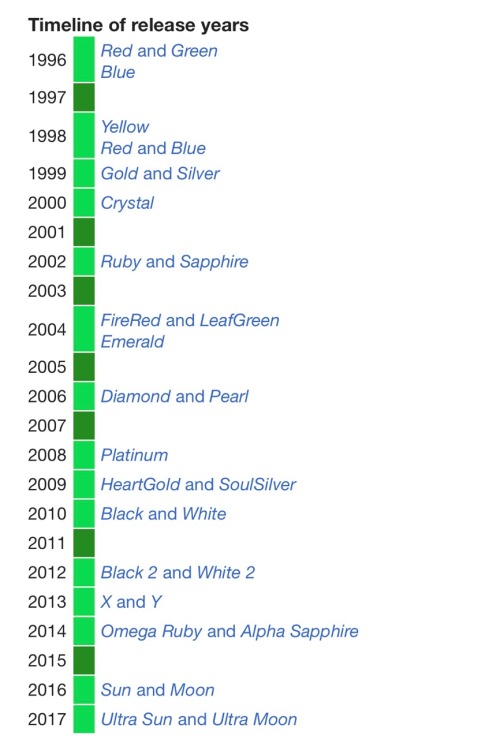
In 2007 I had turned 10 so the game series that was out was diamond and pearl, which means that the region I started my journey in is Sinnoh!
Reblog with what region you start your journey in and what starter you picked.
Anyway I’m from Sinnoh and my starter is turtwig.
my artist brain wants to describe colors in fancy words like carmine and vermilion, but my author brain isn’t completely sold that my protagonist understands what those words mean
Y'know, you could just make up accents in dnd. Tried to give ur character an Australian accent and failed? Well, there is no Australia in this fantasy universe, but there is conceivably a settlement of people who all speak in an accent which sounds, to our ears, like really bad Australian.
What I’m saying is just use the worst fuckong voices for all ur characters and if u get called out on then just say it’s how people talk in fricking green-mushrooms or wherever ur character comes from. Make your party suffer.
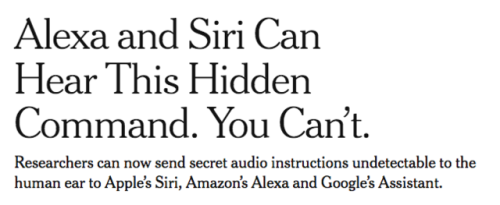


ummmmmmmmm
The problem with people being able to read the books you’ve written, is that when they talk to you in person they expect you to say writery things.
I don’t know how to explain that my mouth and my fingertips have vastly different vocabularies.

Queen Hatshepsut of Ancient Egypt. She has a lovely smile for someone who’s been dead for thousands of years.
if you are 13 and there is a 17/18 year old showing interest in you: please run away and never look back. i understand that you feel special; that older person will tell you how mature you are and make you feel special. but please. run away from that person. stay away from them. they do not love you. an 18 year old should not have ANY interest in a 13 year old. please. please be safe. please do not let them manipulate you. they are dangerous. stay away from them

Been in a funk lately. :/ So I’m experimenting with different techniques to try and get myself out of it.
i randomly wandered into an art gallery with live music and a full cheese spread and im going ape
The Sound Of Silence really does exist, and it’s the lingering echoes of the Big Bang. Without warning, those echoes finally fade and stop… and you can hear what true silence sounds like for the first time…
not even Burt and all of his Bees could save me this time

no mermaid for today but have a gym leader sona as a break from coms!
Writing without a story
I’ve got a couple of asks in my inbox about my prompt fills on here as well as how long I spend on them exactly. So here’s a bit of my process!
1) Find a prompt you like.
There are a lot of great prompt blogs out there! @writing-prompt-s, @gingerly-writing, @witterprompts, @yetmoreprompts and @corvidprompts are some of my favorites to go for inspiration.
For this post, I’ll be using this one (X) from writing-prompt-s! Don’t think too hard about it–that’ll just keep you from writing! Pick one you’d be interested in learning more about and open up a new document!
Prompt: You are a lonely young child. Your parents are always working and you don’t have any friends. To cope, you decide to start talking to your stuffed animal. After you ask it a question one day, it responds
2) Choose your genre.
I tend to stick to urban fantasy or high fantasy, but maybe that’s not what you’re interested in writing! If you like writing out suspense, maybe thriller is more your speed or mystery! The world is your oyster.
3) Write the first line.
I favor my 10th grade english teacher’s advice here and try to write “one true sentence!” Technically it’s Hemingway’s advice, but he can go ahead and stay the frick out of this post!
Here’s my thought process: Young children need physical/verbal/emotional affection. Without the parents around, their reliance on stuffed animals makes sense. They probably hug the animal a lot and, from my experience, well loved stuffed animals aren’t quite as soft as they once were.
First line: Mr. Kili’s mane feels more like the fraying mop in the kitchen than yarn the night that Janet decides he’s the only friend she’ll ever need.
Keep reading